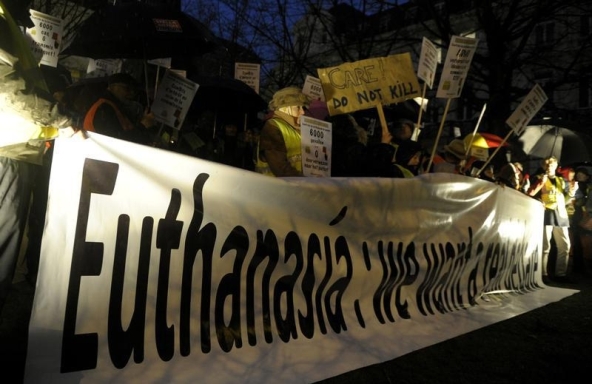Bishop says euthanisia will discourage doctors from improving end-of-life care

Legalising euthanasia will hold up improvements to end-of-life care methods, said medical experts and clergy members at a recent conference sponsored by the Pontifical Academy for Life.
Titled "Assisting the Elderly and Palliative Care," the conference focused on techniques and issues facing experts and organisations specialising in caring for the elderly and the dying.
Palliative care is a medical discipline that focuses on controlling patient's pain, treating psychological problems like depression, and providing spiritual guidance, and it is this they argued needs to be advanced, not euthanasia.
One of the attendees, Richard Doerflinger, told the Catholic News Service (CNS) that the availability of euthanasia, also known as assisted suicide or mercy killings, would only encourage doctors away from pursuing improvements in palliative care. He described mercy killing as a possible "quick fix" that would provide doctors with an easy way out of caring for dying patients, at the expense of developing quality end-of-life care.
Doerflinger, of the Secretariat for Pro-Life Activities in the US Catholic Church, warned: "(A)s one doctor practicing in the Netherlands said, assisted suicide doesn't get added to medicine, it replaces medicine."
Valleyfield Bishop Noel Simard said that administering legal injection to a suffering patient, even if he or she requests it, does not constitute "real care."
"Killing is not care. True care is palliative care because it is accompanying the person with compassion, true compassion," Simard stressed.
Simard spoke of the meaningfulness of a person's final moments, a time in which he said a dying person could, for example, reconcile with family members they were estranged from.
The bishop said that a person's final moments could allow him or her to experience "real dignity," especially when the rites of absolution and the sacrament of the sick are administered.
Euthanasia will negate these benefits, the Valleyfield bishop warned.
"When you just give a person a lethal injection, you may deprive the person of this very important moment for himself and with family members," Simard concluded.











